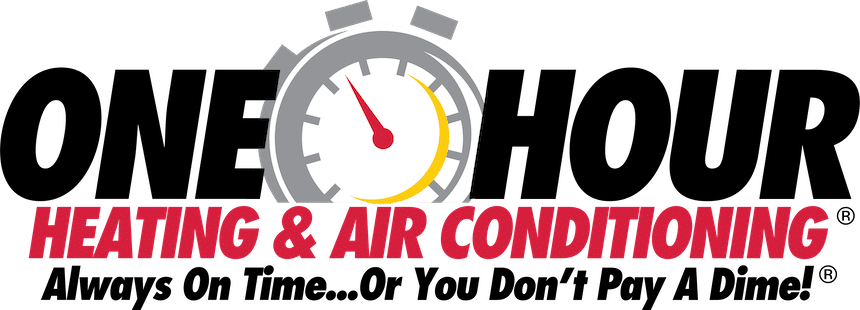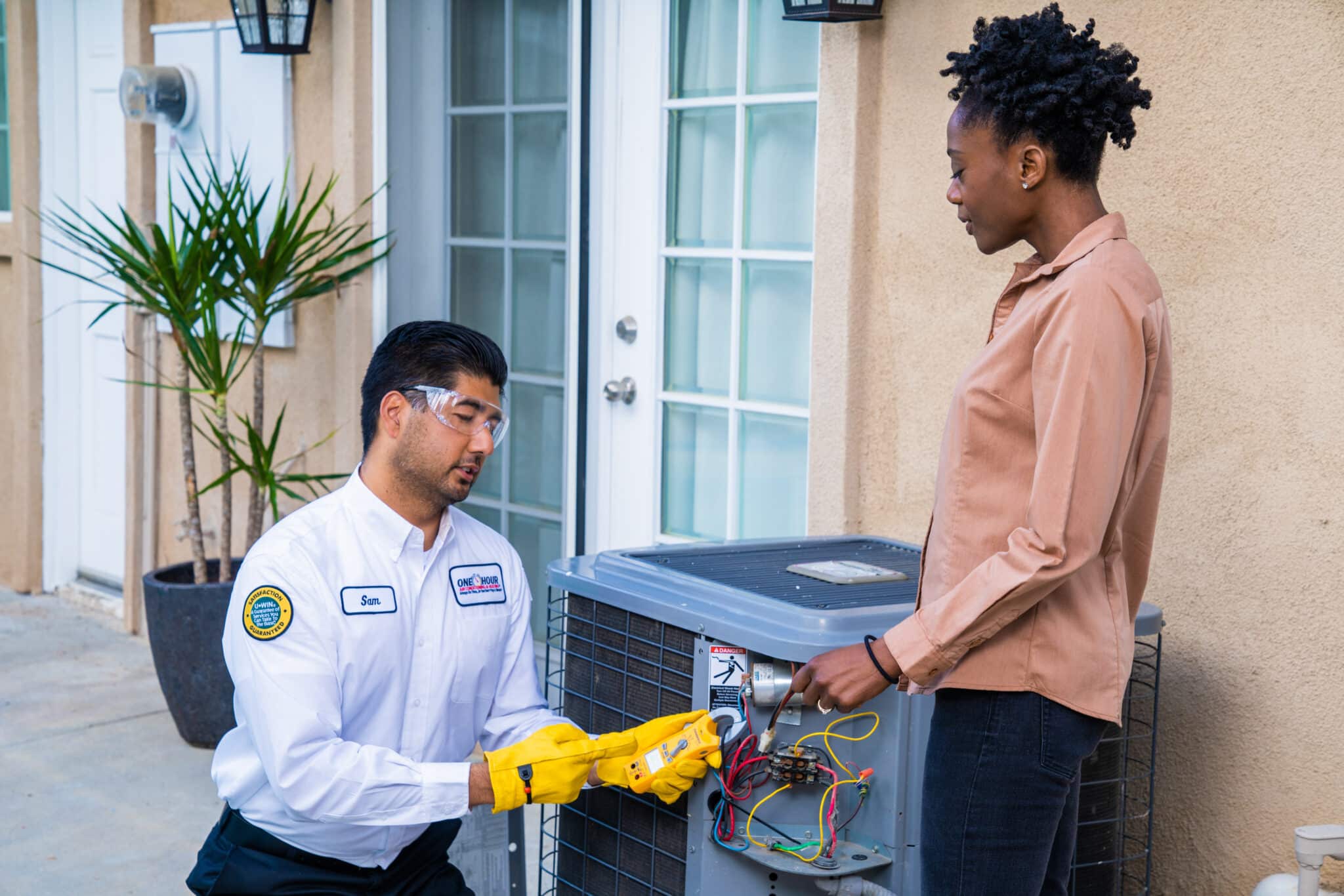Have you ever wondered why regular residential HVAC maintenance is crucial for your home?
HVAC systems, which include heating, ventilation, and air conditioning units, play a vital role in maintaining indoor comfort. These systems are complex and require periodic attention to ensure they operate efficiently and last longer.
Regular residential HVAC maintenance involves a series of routine checks and services designed to keep your system running smoothly.
This includes cleaning and replacing filters, inspecting electrical connections, and ensuring all components are in good working order. By adhering to a scheduled maintenance plan, homeowners can avoid unexpected breakdowns and extend the life of their HVAC systems.
Importance of Regular Residential HVAC Maintenance
Regular maintenance of your HVAC system is essential for several reasons. First, it helps to prevent costly repairs by identifying and addressing potential issues early.
Secondly, it ensures that your system operates at peak efficiency, which can significantly reduce your energy bills. Finally, routine maintenance contributes to improved indoor air quality, which is crucial for the health and comfort of your family.
Benefits of Residential HVAC Maintenance for Homeowners
Increased Energy Efficiency: A well-maintained HVAC system uses less energy, which translates to lower utility bills. Regular cleaning and tune-ups ensure that all components are working optimally, reducing the strain on the system.
Extended Lifespan of Equipment: HVAC systems that receive regular maintenance tend to last longer than those that don’t. By addressing minor issues before they become major problems, you can extend the lifespan of your equipment and avoid the expense of early replacement.
Improved Indoor Air Quality: Clean filters and ducts mean that the air circulating in your home is free of dust, allergens, and other pollutants. This is especially important for households with members who suffer from allergies or respiratory conditions.
Cost Savings Over Time: Investing in regular maintenance may seem like an added expense, but it pays off in the long run.
By avoiding major repairs and extending the life of your HVAC system, you can save a significant amount of money over time.
What is Included in a Residential HVAC Maintenance Plan?
Residential HVAC Maintenance: Seasonal Inspections and Tune-Ups
Seasonal inspections are a cornerstone of any effective residential HVAC maintenance plan. These inspections typically occur twice a year—once in the spring for the air conditioning system and once in the fall for the heating system.
During these visits, technicians perform comprehensive checks and tune-ups to ensure your system is ready for the upcoming season. This proactive approach helps prevent unexpected breakdowns during peak usage periods.
Residential HVAC Maintenance: Cleaning and Replacing Filters
One of the most critical tasks in HVAC maintenance is the regular cleaning and replacing of filters. Dirty or clogged filters can significantly reduce the efficiency of your HVAC system and lead to higher energy bills.
Additionally, clean filters improve indoor air quality by trapping dust, pollen, and other airborne particles. Most maintenance plans include filter changes as part of their service, ensuring that your system always operates with clean, efficient airflow.
Residential HVAC Maintenance: Checking Thermostat Settings
A well-functioning thermostat is essential for maintaining a comfortable indoor environment.
During maintenance visits, technicians will check your thermostat settings to ensure they are correctly calibrated and functioning properly. This ensures that your HVAC system heats or cools your home to the desired temperature without wasting energy.
Residential HVAC Maintenance: Inspecting Electrical Connections
Faulty electrical connections can be dangerous and lead to system malfunctions. As part of a maintenance plan, technicians will inspect all electrical connections within your HVAC system.
They will tighten loose connections, check for signs of wear or corrosion, and ensure that all components are receiving the correct voltage. This not only enhances the safety of your system but also ensures it operates reliably.
Lubricating Moving Parts
Lubrication is vital for the smooth operation of the moving parts within your HVAC system.
Without proper lubrication, parts can wear out faster, leading to breakdowns and costly repairs. During maintenance visits, technicians will lubricate all moving parts, including motors and bearings, to reduce friction and extend the lifespan of your equipment.
Types of Residential HVAC Maintenance Plans
Residential HVAC Maintenance: Basic Plans
Basic HVAC maintenance plans are designed to cover the essential services needed to keep your system running smoothly. These plans typically include seasonal inspections, basic cleaning, and filter changes.
Basic plans are ideal for homeowners who want to ensure their system operates efficiently without investing in comprehensive coverage. They provide a cost-effective solution for routine upkeep and can help prevent major issues by catching problems early.
Residential HVAC Maintenance: Comprehensive Plans
For homeowners looking for more extensive coverage, comprehensive HVAC maintenance plans offer a higher level of service. These plans include everything covered in basic plans plus additional services such as detailed system diagnostics, advanced cleaning, priority service, and discounts on repairs and parts.
Comprehensive plans are perfect for those who want peace of mind knowing that their HVAC system is thoroughly maintained and that they have quick access to professional help if any issues arise.
Residential HVAC Maintenance: Customized Plans for Different Needs
Every home and HVAC system is unique, which is why many service providers offer customized maintenance plans tailored to individual needs. These plans can be adjusted to include specific services based on the age, condition, and usage patterns of your HVAC system.
For example, a customized plan might focus more on frequent filter changes for homes with pets or additional inspections for older systems. Customization ensures that you get the most value from your maintenance plan by addressing your specific requirements.
Choosing the Right Residential HVAC Maintenance Plan
Residential HVAC Maintenance: Assessing Your HVAC System’s Needs
The first step in choosing the right maintenance plan is to assess your HVAC system’s specific needs. Consider factors such as the age of your system, its usage patterns, and any past issues.
Older systems or those with a history of problems may benefit more from a comprehensive plan, while newer systems might only require basic maintenance.
Residential HVAC Maintenance: Budget Considerations
Your budget will also play a significant role in selecting a maintenance plan. While comprehensive plans offer more services, they come at a higher cost.
Evaluate your budget and determine how much you are willing to spend on HVAC maintenance. Remember, investing in a more extensive plan can save you money in the long run by preventing costly repairs and improving energy efficiency.
Residential HVAC Maintenance: Evaluating Service Providers
Finally, take the time to evaluate different service providers. Look for companies with positive customer reviews, transparent pricing, and a track record of reliable service. Ask about the specific services included in their maintenance plans and any additional benefits they offer.
Choosing a reputable provider ensures that your HVAC system receives the best possible care.
How to Choose the Right Residential HVAC Maintenance Plan
Assessing Your HVAC System’s Needs
The first step in choosing the right maintenance plan is to assess your HVAC system’s specific needs. Consider factors such as the age of your system, its usage patterns, and any past issues.
Older systems or those with a history of problems may benefit more from a comprehensive plan, while newer systems might only require basic maintenance.
Budget Considerations
Your budget will also play a significant role in selecting a maintenance plan. While comprehensive plans offer more services, they come at a higher cost.
Evaluate your budget and determine how much you are willing to spend on HVAC maintenance. Remember, investing in a more extensive plan can save you money in the long run by preventing costly repairs and improving energy efficiency.
Evaluating Service Providers
Finally, take the time to evaluate different service providers. Look for companies with positive customer reviews, transparent pricing, and a track record of reliable service.
Ask about the specific services included in their maintenance plans and any additional benefits they offer. Choosing a reputable provider ensures that your HVAC system receives the best possible care.
Frequency of Residential HVAC Maintenance
Seasonal vs. Annual Maintenance
When considering the frequency of residential HVAC maintenance, it’s important to understand the benefits of both seasonal and annual maintenance.
Seasonal residential HVAC maintenance involves bi-annual check-ups, typically in the spring and fall, to prepare your HVAC system for the demands of the upcoming summer and winter months. This approach ensures your system is always in top condition and ready to handle extreme temperatures.
Annual maintenance, on the other hand, involves a single comprehensive check-up each year. While this can be sufficient for newer systems or those with lower usage, it might not catch issues as early as seasonal maintenance.
For most homeowners, especially those in regions with significant temperature fluctuations, seasonal maintenance is recommended to ensure optimal performance and efficiency throughout the year.
Manufacturer Recommendations
Most HVAC manufacturers provide guidelines for maintenance frequency in their user manuals. Adhering to these recommendations is crucial for maintaining your system’s warranty and ensuring it operates as intended.
Typically, manufacturers suggest at least annual maintenance, but many recommend bi-annual check-ups to address any seasonal-specific issues.
Regional Climate Considerations
The climate in your region plays a significant role in determining the appropriate maintenance frequency for your HVAC system.
For example, homeowners in Savannah, Port Royal, and Hardeeville experience hot, humid summers and mild winters. In such climates, air conditioning systems work harder and longer, necessitating more frequent maintenance to prevent wear and tear.
Conversely, in regions with harsher winters, heating systems require more attention. By tailoring your maintenance schedule to the specific climate conditions of your area, you can ensure your HVAC system operates efficiently and reliably all year round.
Residential HVAC Maintenance: DIY Tips
Simple Tasks Homeowners Can Perform
While professional maintenance is essential, there are several simple tasks homeowners can perform to keep their HVAC systems in good shape between professional visits:
Regular Filter Changes: Check and replace your HVAC filters every 1-3 months, depending on usage and manufacturer recommendations.
Cleaning Around the Unit: Keep the area around your outdoor unit free of debris, leaves, and grass clippings to ensure proper airflow.
Checking Thermostat Settings: Regularly inspect your thermostat settings to ensure they are accurate and adjust them seasonally.
Safety Precautions
When performing any DIY HVAC maintenance, safety should be your top priority:
Turn Off Power: Always turn off the power to your HVAC system before performing any maintenance tasks.
Avoid Chemical Cleaners: Use only manufacturer-recommended cleaning solutions to avoid damaging components.
Know Your Limits: Leave more complex tasks, such as electrical inspections and internal cleanings, to the professionals.
When to Call a Professional
Recognizing when to call a professional can prevent minor issues from becoming major problems:
Unusual Noises: If your system makes strange noises, it could indicate a serious issue requiring professional attention.
Inconsistent Temperatures: Difficulty maintaining a consistent temperature may signal a problem with your thermostat or HVAC system.
Increased Energy Bills: A sudden spike in energy bills can indicate that your system is working harder than necessary, often due to underlying issues.
Signs Your HVAC System Needs Maintenance
Unusual Noises
One of the most obvious signs that your HVAC system requires maintenance is the presence of unusual noises. These can include banging, clanking, hissing, or grinding sounds. Such noises often indicate loose or broken components, air leaks, or issues with the motor or fan.
Ignoring these sounds can lead to more significant damage over time. If you hear anything out of the ordinary, it’s essential to schedule a professional inspection immediately to diagnose and fix the problem.
Inconsistent Temperatures
Another common sign of HVAC issues is inconsistent temperatures throughout your home. If certain rooms are significantly warmer or cooler than others, it may indicate problems with your system’s ductwork, thermostat, or overall performance.
Inconsistent temperatures can also result from a lack of regular maintenance, leading to inefficient operation. Addressing these issues promptly can help restore uniform comfort levels in your home and improve your system’s efficiency.
Increased Energy Bills
A sudden or unexplained increase in your energy bills can be a clear indication that your HVAC system is not operating efficiently. Several factors can contribute to this, including dirty filters, worn-out parts, or an aging system struggling to meet your heating and cooling demands.
Regular maintenance helps ensure that your system runs efficiently, keeping energy costs in check. If you notice a significant spike in your utility bills, it’s time to have your HVAC system inspected and serviced.
Poor Air Quality
The quality of the air in your home can be directly affected by the condition of your HVAC system. Signs of poor air quality include increased dust, allergy symptoms, and a noticeable drop in overall indoor air freshness.
Dirty filters, mold growth within the system, and accumulated debris can all contribute to poor air quality. Regular maintenance, including filter changes and thorough cleaning, helps maintain a healthy indoor environment, free of pollutants and allergens.
The Role of Professional HVAC Technicians
Expertise and Training
Professional HVAC technicians bring a wealth of expertise and specialized training to the table.
They are knowledgeable about various HVAC systems and can quickly diagnose and repair issues that may be beyond the capabilities of most homeowners. Their training ensures that they can perform maintenance tasks safely and effectively, adhering to industry standards and best practices.
Use of Advanced Tools and Equipment
HVAC maintenance and repair require specialized tools and equipment that professionals are equipped with.
From advanced diagnostic tools to precise calibration instruments, these tools enable technicians to perform their work accurately and efficiently. Access to the right tools ensures that maintenance tasks are performed correctly, reducing the likelihood of future problems.
Ensuring Safety and Compliance
Safety is a top priority when it comes to HVAC maintenance. Professionals are trained to handle potentially hazardous situations, such as dealing with electrical components or refrigerants.
They also ensure that your HVAC system complies with local building codes and regulations, providing peace of mind that your system is safe and up to standard.
FAQs About Residential HVAC Maintenance
- How Often Should I Service My HVAC System?
Most experts recommend servicing your HVAC system at least twice a year—once in the spring and once in the fall. This ensures your system is ready for the heating and cooling seasons.
- What Happens During a Maintenance Visit?
During a maintenance visit, technicians perform various tasks, including inspecting and cleaning components, checking electrical connections, and testing system performance to ensure optimal operation.
- Can Maintenance Plans Cover Repairs?
Some comprehensive maintenance plans include discounts on repairs or cover minor repairs. However, major repairs typically require an additional cost. Check with your service provider for specifics.
- Are Maintenance Plans Worth the Investment?
Yes, maintenance plans are worth the investment as they help prevent costly repairs, improve system efficiency, extend equipment lifespan, and ensure better indoor air quality.
- What Should I Do If My HVAC System Breaks Down?
If your HVAC system breaks down, contact a professional technician immediately. If you have a maintenance plan, you may receive priority service and discounts on repairs.
Have you considered enrolling in an HVAC maintenance plan to keep your home comfortable year-round?











